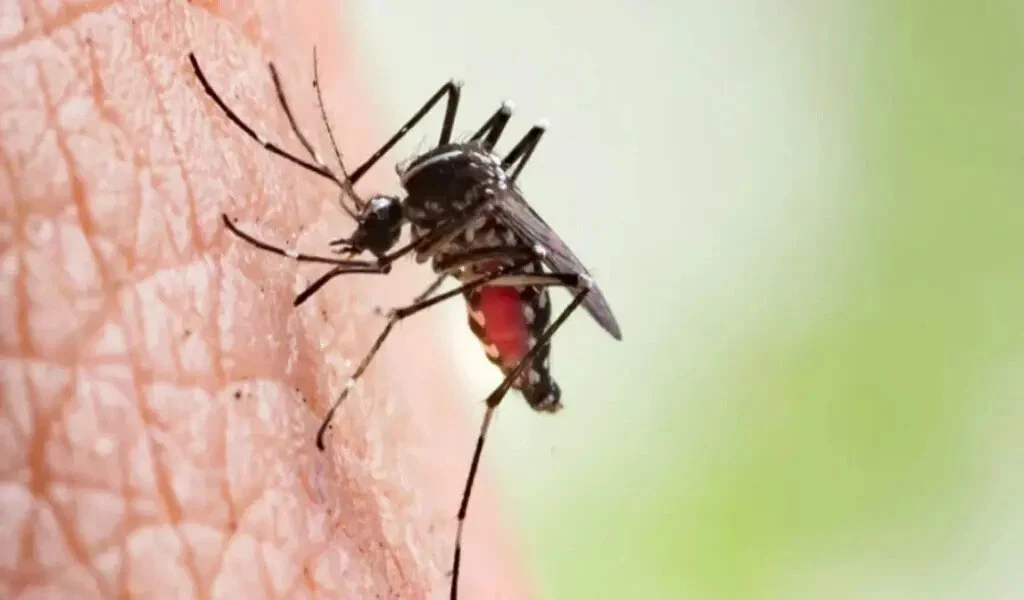(CTN News) – Dengue fever, a mosquito-borne viral infection commonly associated with tropical climates, is making an unexpected entry into Europe. This shift raises concerns about the continent’s readiness to combat a disease historically absent from its borders.
As we delve into the nuances of Dengue, its recent appearance in Europe, and the challenges ahead, it becomes imperative to understand the intricacies of this health threat.
Understanding Dengue
Dengue, caused by the Dengue virus transmitted through Aedes mosquitoes, manifests with symptoms ranging from mild fever to severe flu-like conditions. Its prevalence has traditionally been confined to tropical and subtropical regions.
Global Dengue Trends
While Dengue has been a longstanding health issue in regions like Southeast Asia and Latin America, recent years have seen an alarming increase in reported cases globally. Factors such as urbanization, increased travel, and climate change contribute to the spread of the Aedes mosquito, which carries the Dengue virus.
The European Context
Historically, Europe has been spared Dengue outbreaks. The Aedes mosquito, a primary vector for Dengue, was not considered endemic in the region. However, changing climatic conditions and increased global travel pose new challenges.
Recent Cases
Surprisingly, isolated cases of Dengue have been reported in various European countries. These incidents signal a potential shift in the disease’s geographical distribution and necessitate a thorough investigation into the causes and implications.
Climate Change Impact
Experts suggest that climate change plays a pivotal role in Dengue’s expansion. Warmer temperatures create favorable conditions for the Aedes mosquito to thrive, potentially facilitating the virus’s transmission in European countries.
Challenges in Diagnosis
Diagnosing Dengue in regions unaccustomed to the disease presents challenges. The symptoms may be mistaken for other common illnesses, leading to delayed or misdiagnosed cases. Early detection becomes crucial for effective management.
Vector Control Measures
Controlling the Aedes mosquito population is paramount in preventing Dengue outbreaks. However, implementing effective measures poses challenges, requiring comprehensive strategies and community involvement.
Public Awareness and Education
Raising public awareness about Dengue is a crucial preventive measure. Successful campaigns in other regions have shown that informed communities can actively contribute to mosquito control and early detection.
European Health Infrastructure
The readiness of European healthcare systems to handle Dengue cases is a critical concern. Adequate diagnostic capabilities, treatment options, and public health interventions must be in place to address potential outbreaks.
Collaboration and Preparedness
Given the global nature of Dengue, international collaboration is vital. European countries must work together to share information, resources, and expertise to enhance preparedness for potential outbreaks.
Mitigation Strategies
Drawing lessons from regions that have successfully controlled Dengue, Europe needs comprehensive strategies for mitigation. These include targeted mosquito control, early detection systems, and robust public health campaigns.
The Economic Impact
Beyond health concerns, Dengue outbreaks can have significant economic implications. Increased healthcare costs, loss of productivity, and strain on social services underscore the need for proactive measures.
Future Outlook
Predicting Dengue’s trajectory in Europe requires ongoing research and vigilance. As climate patterns continue to shift, and global travel remains prevalent, staying ahead of potential outbreaks is crucial.
Conclusion
In conclusion, the emergence of Dengue in Europe demands attention and action. The continent must not underestimate the potential risks and should invest in preventive measures, research, and international collaboration to combat this unexpected health threat.
FAQs
Q: Can Dengue become a widespread problem in Europe?
A: While isolated cases have been reported, widespread Dengue outbreaks depend on various factors, including climate changes and effective preventive measures.
Q: How can individuals protect themselves from Dengue in Europe?
A: Personal protection measures, such as using mosquito repellents and wearing long sleeves, can help minimize the risk of mosquito bites.
Q: What role does climate change play in Dengue’s spread to Europe?
A: Warmer temperatures create favorable conditions for the Aedes mosquito, potentially expanding its range and facilitating Dengue transmission.
Q: Are European healthcare systems prepared for Dengue cases?
A: The readiness varies across countries, highlighting the need for investment in diagnostic capabilities and public health infrastructure.
Q: How can international collaboration help in Dengue prevention?
A: Sharing information, resources, and expertise among countries can enhance preparedness and response to potential Dengue outbreaks.





